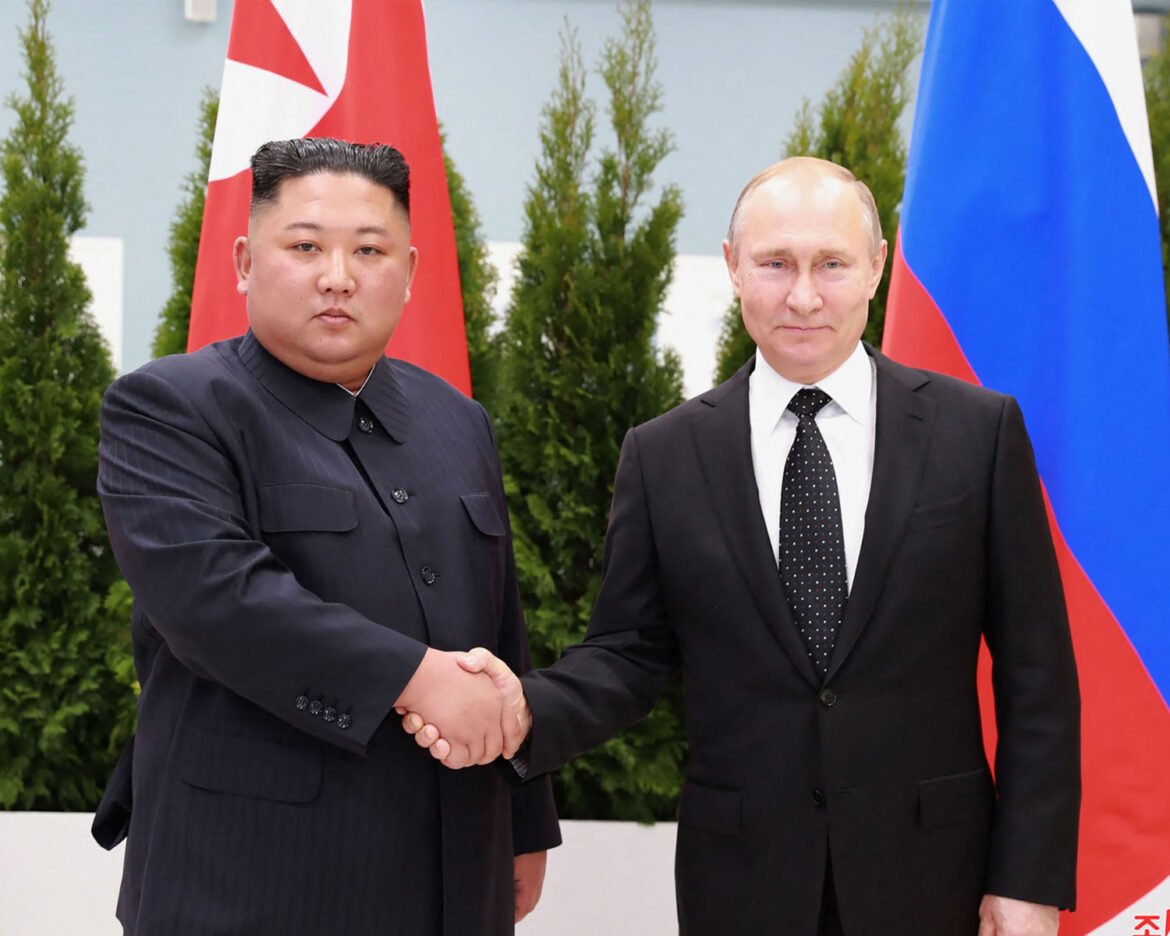In a diplomatic move highlighting the evolving dynamics between Moscow and Pyongyang, Russian President Vladimir Putin conveyed a message of congratulations to Kim Jong Un, North Korea’s supreme leader, on the occasion of the nation’s National Liberation Day this Tuesday. In his message, Putin emphasized the need for both nations to fortify their ties, pointing to their shared historical foundations and the strategic benefits of cooperation.
The recent strengthening of relations between North Korea and Russia has been attributed to their mutual isolation from Western nations and the imposition of sanctions. This alignment was underscored by Putin’s statement, distributed by the Kremlin, where he expressed confidence in the continued expansion of bilateral cooperation across various sectors. Notably, Putin underscored the importance of enhancing stability and security in the Korean Peninsula and the Northeast Asian region as a whole.
Putin alluded to the historical significance of the Korean Peninsula’s liberation from Japanese rule, a period during which the groundwork for collaboration between Moscow and Pyongyang was laid. The Russian leader’s words resonate with the shared historical narrative that forms a backdrop to the developing relationship.
Sergei Shoigu, the Russian defense minister, reinforced the deepening connection during a recent visit to Pyongyang, where he met with his North Korean counterpart, Kang Sun Nam. Shoigu’s positive assessment of the relationship between the two countries was met with international interest, including from the United States.
Secretary of State Antony Blinken raised concerns that Shoigu’s visit might be linked to acquiring military supplies to support Russian forces involved in the Ukrainian conflict. This perception reveals the intricacies of global politics and the interconnectedness of various geopolitical developments.
In contrast, South Korean President Yoon Suk Yeol’s approach diverged. While commemorating Liberation Day in tandem with North Korea, Yoon sought to mend relations with Japan, describing it as a “partner” sharing common values and goals. This overture to Japan, a former colonial power, underscores Yoon’s desire for regional stability and cooperation.
As Kim Jong Un voiced ambitions for swift military advancements, including tactical nuclear capabilities, Yoon’s administration pursued diplomatic reconciliation with Japan while simultaneously fostering closer ties with the United States. The impending trilateral summit between the leaders of South Korea, North Korea, and the United States stands as a testament to this approach. Set to take place in the US, the summit aims to foster improved military cooperation while contributing to peace and prosperity in the Korean Peninsula and the broader Indo-Pacific region.
The diplomatic landscape in East Asia continues to evolve, with historical legacies, regional ambitions, and global power dynamics intersecting in complex ways. The actions and interactions of leaders from Russia, North Korea, South Korea, and beyond are poised to shape the geopolitical trajectory of the region for the foreseeable future.



